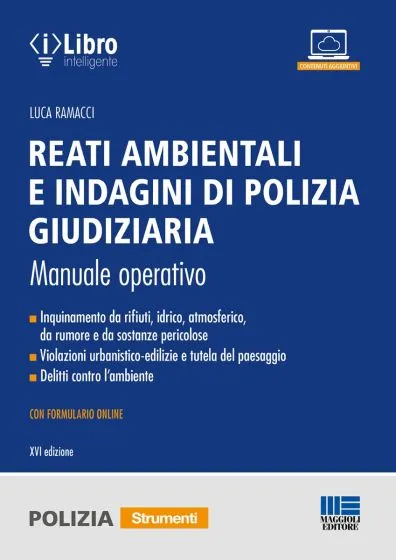Environmental criminal law has become increasingly important in recent years, imposing itself as a branch of criminal law at the forefront, for better or worse, of trends and problems surfacing in criminal law understood more broadly.
One need only think of crimes of danger, protection of functions, interpretation in accordance with European law, the precautionary principle, and other principles and trends that, having emerged in our subject matter, have now spread to other areas of the criminal law system.
The practice has intercepted these phenomena, giving rise to a lively judicial reality, ranging from frequent and everyday trials for environmental contraventions (especially in the areas of waste and water) to maxi environmental trials (from the Porto Marghera Petrochemical plant to the Ilva, Tamoil, Bussi and Spinetta Marengo cases, passing through Eternit, to remain with the best known), where to date crimes against public safety have been contested, the criminal surrogate, until 2015, of strictly environmental crimes.
The doctrine, on the other hand, has, after a few albeit meritorious works in the 1980s and 1990s, progressively tackled environmental criminal issues, flanking several monographs with a now robust production of manuals, commentaries and collected works, which have also become necessary as study material for the numerous environmental criminal law teachings that have recently sprung up in Italy.
Within this framework of renewed interest, we believe it useful and appropriate to dedicate to environmental criminal law an ad hoc journal, which we would like to be able to stimulate critical discussion in the scientific community of academic criminalists, in the world of lawyers and magistrates, all advocates, in their respective roles, of a criminal law that has always been dominated by the jurisprudential formant, and precisely for this reason in need, it seems to us, of critical attention from the doctrine.
The Journal, online and free of charge and, published under a CC-by-nc license, has a quarterly cadence, and the authoritativeness of contributions is guaranteed by double blind peer review by members of the scientific committee and reviewers with specific expertise in environmental criminal law.
The Journal hosts articles, essays, case notes and reviews, including foreign and comparative law, concerning environmental criminal law in a broad sense, including not only pollution but also the protection of land, landscape, animals, GMOs, public health, food, etc.
Special attention is paid to the most current issues in public and scientific discussion as well as in judicial reality.
The ambition is to bring theory and practice into constructive dialogue, starting from the problems of protection and arriving at solutions that are theoretically grounded and respectful of constitutional and supranational principles and guarantees.
Submissions (articles, essays, case notes, reviews) should be submitted to the editors at redazione.lexambiente@gmail.
They should give a concise account of the relevant legal framework and relevant doctrinal and jurisprudential orientations.
The author should not be involved as a procedural party in the judgments or contributions being commented on.
The journal imposes no processing and publication costs.
Luca RAMACCI Carlo RUGA RIVA





